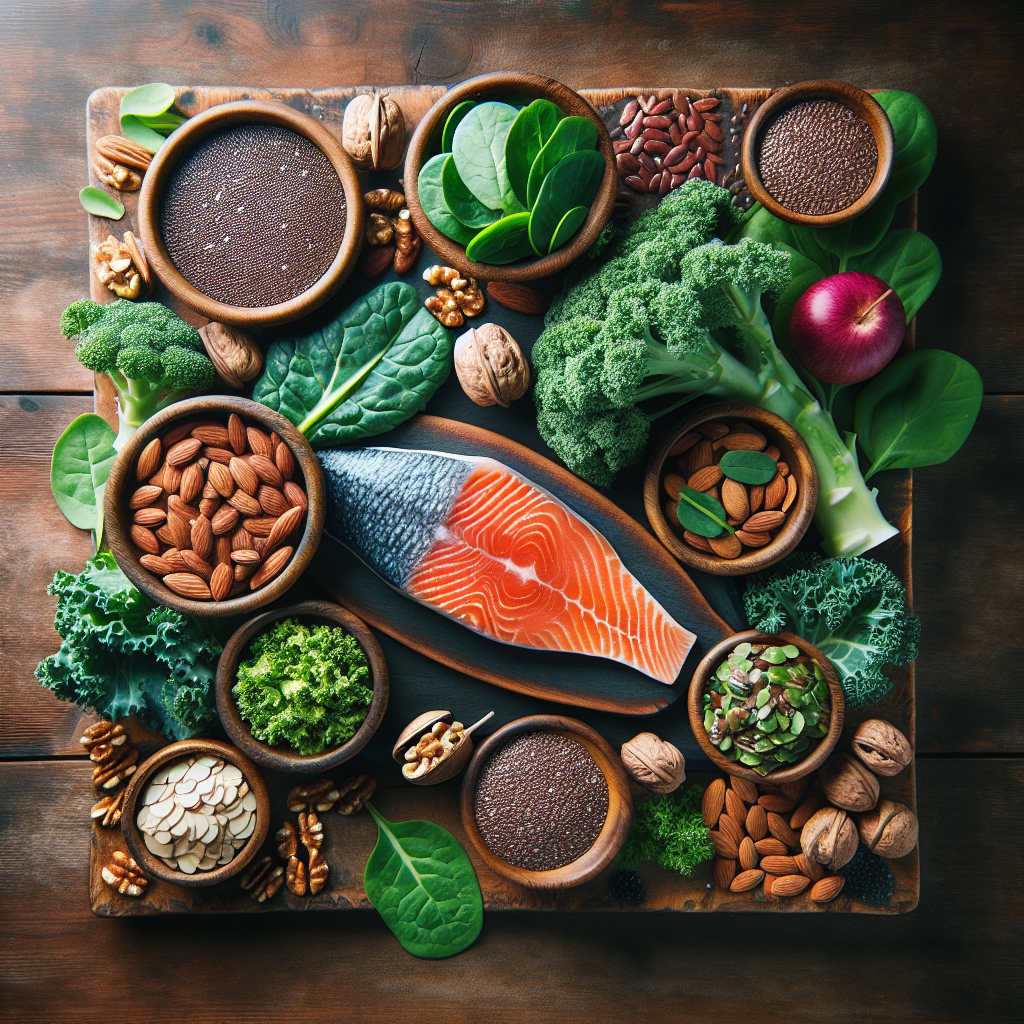Understanding Blood Clotting and Nutrition
Blood clotting is a vital biological process that prevents excessive bleeding when injuries occur. However, imbalances can lead to complications like excessive clotting (thrombosis) or poor clotting (hemorrhage). Nutrition plays a crucial role in maintaining this delicate balance. Organic foods rich in vitamin K, omega-3 fatty acids, and other nutrients can naturally support healthy blood clotting and circulatory function.
Vitamin K: The Clotting Vitamin
Vitamin K is essential for the production of proteins involved in blood clotting, particularly prothrombin. There are two main forms: K1 (phylloquinone) found in plants, and K2 (menaquinone) produced by gut bacteria and found in fermented foods.
Top Organic Vitamin K1 Sources
- Kale – One cup provides over 600% of the daily vitamin K requirement
- Spinach – Packed with K1 and other circulatory-supporting nutrients
- Swiss chard – Contains about 300% DV per cooked cup
- Broccoli – Offers 100% DV in just half a cup cooked
- Brussels sprouts – Excellent source with 137% DV per half cup
Best Organic Vitamin K2 Sources
- Natto – Fermented soybeans with exceptionally high K2 levels
- Organic aged cheeses – Gouda and brie are particularly rich
- Organic egg yolks – From pasture-raised chickens
- Organic liver – Especially chicken and goose liver
Omega-3 Fatty Acids for Circulatory Health
Omega-3s help maintain proper blood viscosity and platelet function, preventing excessive clotting while supporting overall cardiovascular health.
Top Organic Omega-3 Sources
- Flaxseeds – One of the richest plant sources of ALA omega-3s
- Chia seeds – Provide both omega-3s and fiber
- Walnuts – Contain heart-healthy fats and antioxidants
- Wild-caught salmon – Excellent source of EPA and DHA
- Sardines – Small fish with big nutritional benefits
Additional Nutrients That Support Blood Clotting
Several other nutrients work synergistically with vitamin K and omega-3s to support healthy clotting:
Magnesium-Rich Foods
Magnesium helps regulate blood pressure and circulation. Excellent organic sources include:
- Pumpkin seeds
- Almonds
- Black beans
- Avocados
Vitamin E Sources
This antioxidant vitamin helps prevent excessive platelet aggregation. Find it in:
- Sunflower seeds
- Almonds
- Hazelnuts
- Spinach
Foods to Support Healthy Circulation
Beyond clotting factors, these foods promote overall circulatory health:
Garlic
Contains allicin, which may help prevent platelet aggregation and support blood flow.
Beets
High in nitrates that help dilate blood vessels and improve circulation.
Turmeric
Curcumin in turmeric has anti-inflammatory properties that benefit blood health.
Balancing Your Diet for Optimal Clotting
While increasing these beneficial foods, it’s important to maintain balance:
- Consult with a healthcare provider if taking blood thinners
- Maintain consistent vitamin K intake rather than sporadic large amounts
- Combine blood-supporting nutrients for synergistic effects
- Stay hydrated to maintain proper blood viscosity
Potential Interactions and Considerations
Certain conditions and medications may require dietary adjustments:
- Warfarin users should maintain consistent vitamin K intake
- Those with bleeding disorders may need medical supervision
- High doses of omega-3s may interact with blood thinners
- Always discuss significant dietary changes with your healthcare provider
By incorporating these organic, nutrient-dense foods into your diet, you can naturally support healthy blood clotting and overall circulatory function. Remember that nutrition works best as part of a holistic approach to health that includes regular exercise, stress management, and adequate sleep.
